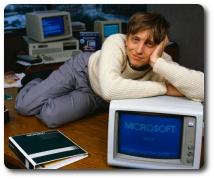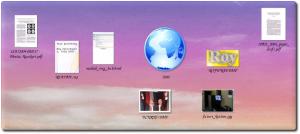Healthy Competition
 here are healthy competitions and morbid competitions. A competition which involves handicapping the opponents is always a destructive and dangerous one. Nevertheless, there are examples in industry where Xerox, Microsoft, Amazon and other leaders file laughable patents for what should certainly remain a taboo — a no-go area. After 5 years and 4 rejection, Amazon received exclusive rights to inform customers of what they already bought (history). Sounds outrageous? It gets worse…
here are healthy competitions and morbid competitions. A competition which involves handicapping the opponents is always a destructive and dangerous one. Nevertheless, there are examples in industry where Xerox, Microsoft, Amazon and other leaders file laughable patents for what should certainly remain a taboo — a no-go area. After 5 years and 4 rejection, Amazon received exclusive rights to inform customers of what they already bought (history). Sounds outrageous? It gets worse…
Microsoft are patenting the custom emoticons, practically opening the door to control of social behaviour with an army of lawyers. Instead of following such footsteps, companies must strive to innovate and offer some added value, not imitate and shield uninnovative ideas that have floated around for decades.

Bill Gates posing for a teen magazine in 1985
with a Mac at the back, from which he nicked the GUI
A competition where giants impose legal barriers to obstruct smaller opponents is like taking the lead in running race, tossing water bootles back at the track. Proprietary, patents and artificial channelling of users all have this effect. At the end of the day, Bill Gates wonders why computer science is slowly dying in the United States.






 Filed under:
Filed under: 


 ithin this post lies my main argument as to why Linux (or complimentary Open Source streams or movements) will rise hugely in less than a decade. The cost of production continues to slide while human intellect (development) is among the more expensive commodities. The
ithin this post lies my main argument as to why Linux (or complimentary Open Source streams or movements) will rise hugely in less than a decade. The cost of production continues to slide while human intellect (development) is among the more expensive commodities. The 

 ver had the experience of staring at a collection of files, wondering which one is which and puzzled by the best way of finding the text or images you are after? This was a wide-spread operating system deficiency in the nineties (there was a brute-force barrier). Nowadays, directories reflect on their content and file previews are generated on-the-fly, even over FTP, i.e. remote data.
ver had the experience of staring at a collection of files, wondering which one is which and puzzled by the best way of finding the text or images you are after? This was a wide-spread operating system deficiency in the nineties (there was a brute-force barrier). Nowadays, directories reflect on their content and file previews are generated on-the-fly, even over FTP, i.e. remote data.
 buntu is a Linux distribution that is based on Debian and resembles it too. This Gnome-based (also see
buntu is a Linux distribution that is based on Debian and resembles it too. This Gnome-based (also see 
 lasma is an exciting project in progress, which will enrich the Linux desktop environment even further. Mac OS X is still ahead of Linux in terms of eye candy, yet KDE is close to catching up with the foreseeable release of KDE 3.5.
lasma is an exciting project in progress, which will enrich the Linux desktop environment even further. Mac OS X is still ahead of Linux in terms of eye candy, yet KDE is close to catching up with the foreseeable release of KDE 3.5.